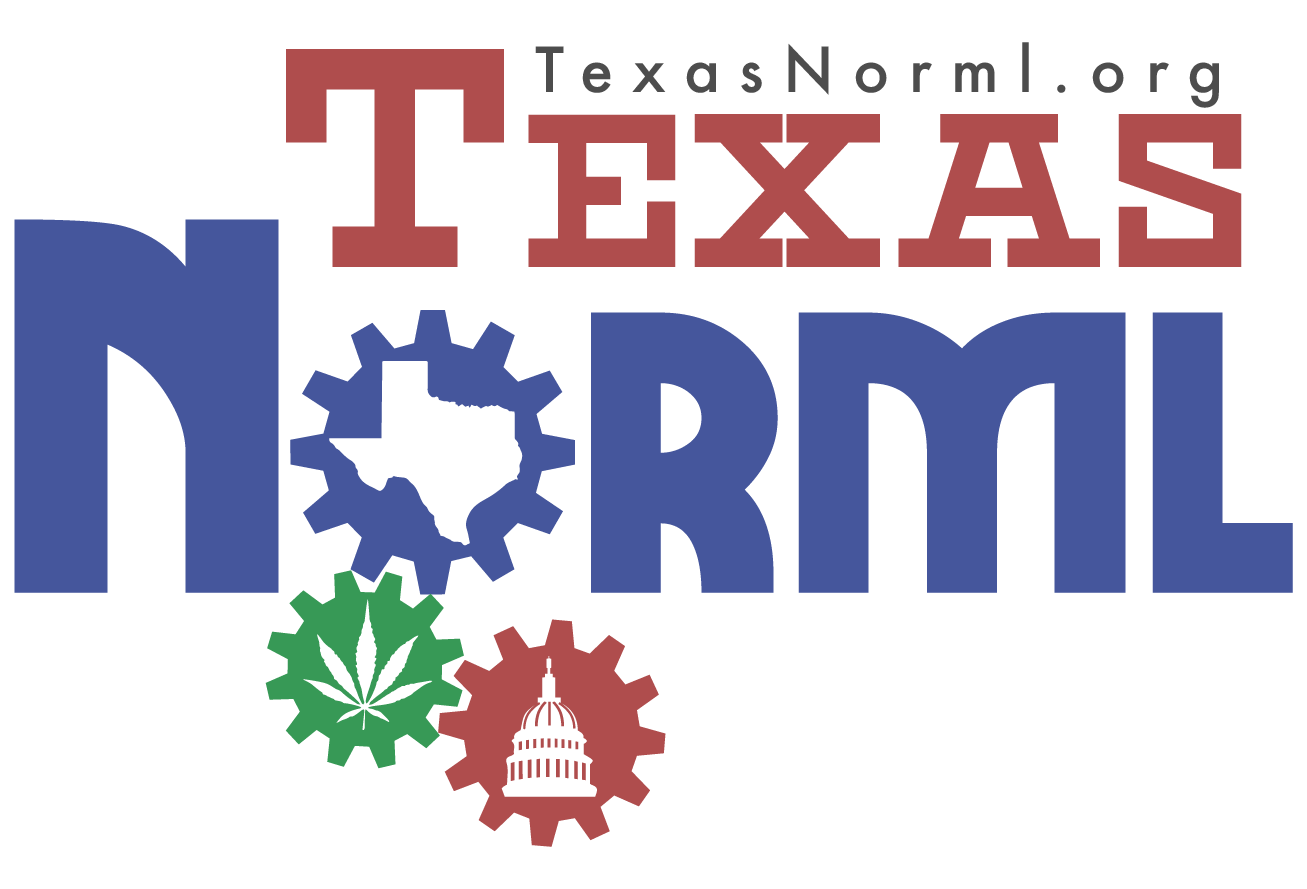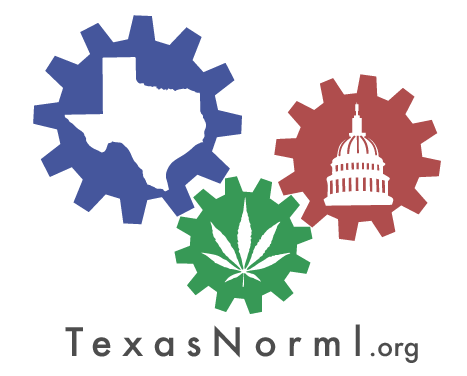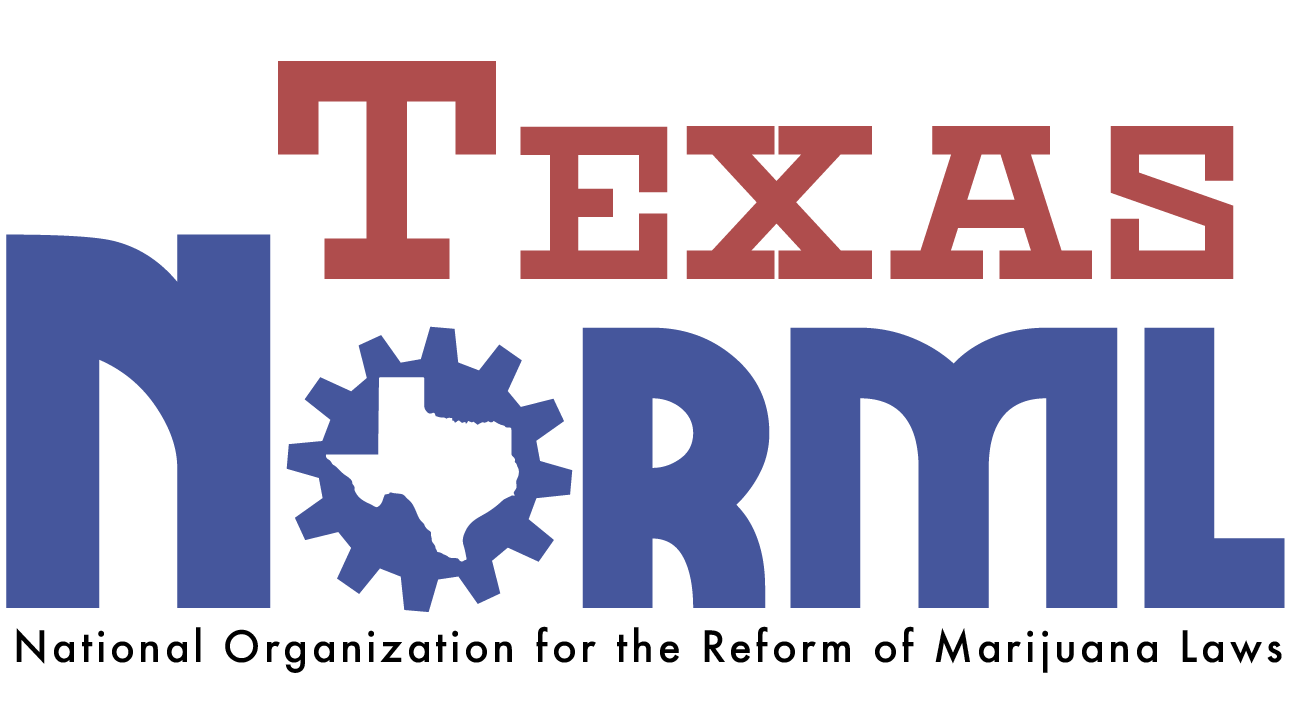TX NORML open meeting notes, July 6th, 2011
During last month’s meeting we covered these stories:
– Study says inhaled Cannabis benefits Fibromyalgia patients
– Supreme Court rules warrantless searches legal IF police suspect drugs/contraband are being destroyed
– Montana’s new restrictive medical marijuana revisions become law
– Maryland Gov. signs into law expanded legal protections for medical marijuana patients
– Delaware becomes the 16th medical marijuana state
– Vermont House & Senate approve marijuana dispensaries
– NORML, ASA, & other activists file federal lawsuit against federal government asking for response to 9-year-old petition to reclassify marijuana under federal law
– Industrial Hemp Farming Act re-introduced, HR 1831, by Rep. Ron Paul and 25 co-sponsors
– States’ Medical Marijuana Patient Protection Act, HR 1983, re-introduced by Rep. Barney Frank and several co-sponsors
– We also recapped the Texas 82nd Legislative Session, with neither HB 548 nor HB 1491 making out of committee
Now for news from the past month:
THC Administration Halts Disease Progression, Decreases Mortality In Primate Version of HIV
The long-term administration of delta-9-THC, the primary psychoactive compound in marijuana, is associated with decreased mortality in monkeys infected with the simian immunodeficiency virus (SIV), a primate model of HIV (human immunodeficiency virus) disease, according to in vivoexperimental trial data published in the June issue of the journal AIDS Research and Human Retroviruses.
Investigators at the Louisiana State University Health Sciences Center assessed the impact of chronic intramuscular THC administration compared to placebo on immune and metabolic indicators of the disease.
The researches found that administration of THC decreased the diseases progression and decreased early mortality.
Clinical trials have previously documented that the short-term inhalation of cannabis does not adversely impact viral loads in HIV patients, and may even improve immune function.
Cannabinoids Delay Disease Progression In Animal Model Of Huntington’s Disease
Huntington’s Disease is an inherited degenerative brain disorder characterized by motor abnormalities and dementia produced by selective lesions in the cerebral cortex and, in particular, the striatum. There are presently no known conventional therapies available to alleviate HD symptoms or delay HD-associated striatal degeneration.
An international team of investigators from Spain, Italy, and the United Kingdom assessed whether THC and CBD-rich botanical extracts could delay the progress of the disease in laboratory animals. Authors reported that the combined administration of the plant cannabinoids THC and CBD (cannabidiol) provide neuroprotection in rat models of Huntington’s Disease (HD), and are publishing their findings in The Journal of Neuroscience Research.
Investigators concluded, “In our opinion, these data provide sufficient preclinical evidence to justify a clinical evaluation of [one to one THC to CBD] cannabis-based medicine … as a neuroprotective agent capable of delaying disease progression in patients affected by HD, a disorder that is currently poorly managed in the clinic, prompting an urgent need for clinical trials with agents showing positive results in preclinical studies.
Over One Million Patients Likely Using Medical Cannabis In California, CA NORML Study Estimates
There are now over 750,000 people in California — some two percent of the population — using medical marijuana in compliance with state law, according to estimates published this week by California NORML.
Because patients are not required to register in California, their exact number is uncertain. Under California’s medical marijuana law, … patients need only a physician’s recommendation to be legal. Just a tiny fraction of the state’s medical marijuana population is enlisted in the state’s voluntary ID card program, which issued just 12,659 cards in 2009-10. Therefore, California patient numbers must be estimated from other sources. Among the most salient are medical marijuana registries in Colorado and Montana, which report usage rates of 2.5% and 3.0%, respectively. Because California’s law is older and has more liberal inclusion criteria than other states, usage here is likely to be higher.
Despite this, there is no evidence that liberal access to medical marijuana has spurred overall marijuana use in California. According to U.S. Substance Abuse and Mental Health Services Administration data, the total number of users in the state, including non-medical ones, amounts to 6.7% of the population (2.5 million) within the past month, or 11.3% (4.1 million) within the past year.
This places California only slightly above the national average in marijuana use (6.0% monthly and 10.4% yearly), and below several states with tougher marijuana laws. Use of marijuana by California school youth has declined since Prop. 215 passed, according to data from the Attorney General’s Survey of Student Drug Use in California. The increase in medical marijuana use therefore appears to reflect a tendency for existing users to ‘go medical,’ rather than the enlistment of new users.
California NORML estimates that the total retail value of medical marijuana consumed in California is “between $1.5 and $4.5 billion per year, assuming a market of 2% to 3% of the population, average use of 0.5 to 1 gram per day, and an average cost of $320 per ounce.
Connecticut Lawmakers Approve Legislation Removing Criminal Penalties For The Limited Possession Of Marijuana By Adults
State lawmakers this week approved legislation, Senate Bill 1014, that ‘decriminalizes’ the possession of small, personal use amounts of marijuana by adults.
SB 1014 reduces the penalties for the adult possession of up to one-half ounce of marijuana from a criminal misdemeanor (punishable by one year in jail and a $1,000 fine) to a non-criminal infraction, punishable by a fine, no arrest or jail time, and no criminal record. This measure would similarly reduce penalties for the possession of marijuana paraphernalia.
The new law will be similar to the existing ‘decriminalization’ laws in California, Colorado, Maine, Massachusetts,Nebraska, New York, and Oregon where private, non-medical possession of marijuana is treated as a civil, non-criminal offense.
Five additional states – Minnesota, Mississippi, Nevada, North Carolina, and Ohio – treat marijuana possession offenses as a fine-only misdemeanor offense. Alaska law imposes no criminal or civil penalty for the private possession of small amounts of marijuana by adults.
Since 1977, only California, Nebraska, and Nevada have enacted decriminalization laws legislatively. Massachusetts enacted its law via ballot initiative in 2009.
Vermont Gov. Signs Dispensaries Legilsation Into Law
Democrat Gov. Peter Shumlin signed legislation into law last week that authorizes the state Department of Public Safety to license up to four facilities to provide marijuana to qualified patients. Each facility will be allowed to provide cannabis for up to 1,000 patients.
They should begin issuing licenses within six or seven months and are required by law to begin doing so within one year.
Washington’s Supreme Court Says Their Medical Marijuana Law Provides No Protection For Employees’ Off-The-Job Use Of Cannabis
An employer may terminate an employee for his or her off-the-job marijuana use, even if the employee is authorized under state law to use cannabis medicinally, the Washington Supreme Court ruled in an 8 to 1 decision.
The Court’s Decision stated, “Washington court decisions do not recognize a broad public policy that would remove any impediment to medical marijuana use or impose an employer accommodation obligation. Washington patients have no legal right to use marijuana under federal law. Though [the petitioner] claims the divergence between Washington’s [medical marijuana law] and federal drug law is of no consequence to a state tort claim, the two cannot be completely separated.”
In 2010, the Oregon Supreme Court made a similar ruling, and in 2008 the California Supreme Court did so as well.
Netherlands: Dutch Government Moving Forward With Plans To Bar Foreigners Access To Cannabis ‘Coffee Shops’
Government officials announced that their Cabinet expects that closure of coffee shops to foreign drug tourists will ensure that they no longer travel to the Netherlands to purchase and [consume] cannabis.
Dutch residents will still be permitted to frequent the establishments, which will function as private clubs rather than facilities that are open to the general public.
The new policy “will roll out in the southern provinces of Limburg, Noord Brabant and Zeeland by the end of the year and the rest of the country next year,” Reuters News Wire reported.
This came on the heels of last year’s decision by the European Court of Justice, Europe’s highest court, that the Dutch Cabinet is within its legal rights to impose such a ban on so-called ‘drug tourism’.
The proposed change has been called ‘tourism suicide’ by members of Parliament who oppose the ban.
Maine Lawmakers Expand Privacy, Other Legal Protections For Medical Cannabis Patients
House and Senate lawmakers passed legislation, LD 1296, to protect the privacy of qualified medical cannabis patients.
The measure eliminates a recently enacted legislative mandate requiring medical marijuana patients to be registered with the state in order to receive legal protection under state law. LD 1296 also limits the ability of law enforcement to seize cannabis from lawful patients, and mandates for the return of any seized property within seven days.
Republican Gov. Paul LePage said he intends to sign LD 1296 into law.
Only two additional states – California and Washington — do not require patients to be registered with the state to receive limited legal protections.
Obama Administration Apparently Goes Back On Their Previous Statements Regarding Medical Marijuana In States That Have Legalized It’s Use
The U.S. Department of Justice remains committed to prosecuting “large-scale” cultivation, sale and distribution of marijuana, even in states which have enacted legislation permitting the use of cannabis for medical uses.
This, despite what was stated in the 2009 “Ogden Memo”, in which the Administration suggested that Federal resources should not be used to go after medical marijuana in states where it is legal under state law.
The new memo states, “The Ogden Memorandum was never intended to shield such activities from federal enforcement and prosecution, even where those activities purport to comply with state law.”
And, “Persons who are in the business of cultivating, selling or distributing marijuana, and those who knowingly facilitate such activities, are in violation of the Controlled Substances Act, regardless of state law,” the memo reads. “Consistent with resource constraints and the discretion you may exercise in your district, such persons are subject to federal enforcement action, including potential prosecution.”
One thing is clear. States will never truly enjoy the freedom to experiment with alternative marijuana policies until the federal government is compelled to get out of their way.
The Industrial Hemp Farming Act of 2011, has been re-introduced by Rep. Ron Paul and a coalition of 25 co-sponsors
House Bill 1831, would exclude low potency varieties of marijuana from federal prohibition. If approved, this measure will grant state legislatures the authority to license and regulate the commercial production of hemp as an industrial and agricultural commodity.
Several states — including North Dakota, Montana, and Vermont – have enacted regulations to allow for the cultivation of hemp under state law. However, none of these laws can be implemented without federal approval. Passage of HR 1831 would remove existing federal barriers and allow states that wish to regulate commercial hemp production the authority to do so.
The “States’ Medical Marijuana Patient Protection Act” has been re-introduced by Rep. Barney Frank and a coalition of several of co-sponsors
House Bill 1983, would ensure that medical cannabis patients in states that have approved its use will no longer have to fear arrest or prosecution from federal law enforcement agencies. It states, “No provision of the Controlled Substances Act shall prohibit or otherwise restrict in a State in which marijuana may be prescribed or recommended by a physician for medical use under applicable State law.”
It also calls for an expedited rescheduling review by the federal government that would reclassify cannabis fromSchedule I to Schedule III under the federal Controlled Substances Act, recognizing the plant’s accepted medical use and streamlining the federal approval process for medical marijuana research.
16 states, and the District of Columbia, have enacted laws protecting medical marijuana patients from state prosecution.
Alaska, Arizona, California, Colorado, Delaware, Hawaii, Maine, Michigan, Montana, New Jersey, New Mexico, Nevada, Oregon, Rhode Island, Vermont, Washington
Yet in all of these states, patients and providers still face the risk of federal sanction — even when their actions are fully compliant with state law.
And, of course, in recent months the Federal government has dramatically stepped up it’s harassment and threats of medical marijuana in many of those states.
Members Of Congress Introduce First Federal Measure Since 1937 To Legalize The Adult Use Of Marijuana
The bipartisan measure — HR 2306, the ‘Ending Federal Marijuana Prohibition Act of 2011? and sponsored by Massachusetts Democrat Barney Frank and Texas Republican Ron Paul along with Reps. Cohen (D-TN), Conyers (D-MI), Polis (D-CO), and Lee (D-CA) — prohibits the federal government from prosecuting adults who use or possess marijuana by removing the plant and its primary psychoactive constituent, THC, from the five schedules of the United States Controlled Substances Act of 1970. Under present law, all varieties of the marijuana plant are defined as illicit Schedule I controlled substances, defined as possessing ‘a high potential for abuse,’ and ‘no currently accepted medical use in treatment.
Said Rep. Frank, “We do not believe that the federal government ought to be involved in prosecuting adults for smoking marijuana.”
Said Rep. Cohen, “The federal government shouldn’t be spending its time on marijuana.”
The ‘Ending Federal Marijuana Prohibition Act’ seeks to federally deregulate the personal possession and use of marijuana by adults. It marks the first time that members of Congress have introduced legislation to eliminate the federal criminalization of marijuana since the passage of the Marihuana Tax Act of 1937.
Language in this Act mimics changes enacted by Congress to repeal the federal prohibition of alcohol. Passage of this measure would remove the existing conflict between federal law and the laws of those sixteen states that allow for the limited use of marijuana under a physicians’ supervision. It would also allow state governments that wish to fully legalize and regulate the responsible use, possession, production, and intrastate distribution of marijuana for all adults to be free to do so without federal interference.
NORML, along with representatives from the Drug Policy Alliance (DPA), Students for Sensible Drug Policy (SSDP), and theMarijuana Policy Project (MPP), worked closely with members of Congress in drafting the measure.
HR 2306 is assigned to the House Judiciary Committee, and for those of you who aren’t connected to us online, the Chairman of that Committee is a Texas Representative, Lamar Smith, of the 21st US District, which encompases parts of Travis & Bexar counties, and all of Comal, Real, Kerr, Bandera, Kendall, and Blanco counties.
Rep. Smith has already expressed his intent to block HR 2306 from having a fair hearing and vote in the Judiciary Committee, and we have been actively asking our supporters and friends to contact his offices to ask him to at least give this bill a fair hearing and vote.
Yesterday, The Republican Club of Austin held their luncheon in Austin at the Green Pastures Restaurant, and Rep. Lamar Smith was the featured speaker at the event.
Texas NORML, along with the Texas Hemp Campaign and others, had representatives in attendance at this event for the sole purpose of having a conversation about HR 2306, and why the Rep. should at least give it a hearing.
I would now like to bring up Texas NORML’s Volunteer Coordinator, Jax Finkel, who was at the luncheon with me, to give you a run-down of how the event went, what was said, and how to move forward.
Guest Speakers
Jax Finkel
Kris Bailey –
Upcoming Events & Announcements
On Saturday, July 30th, Texas NORML will be sponsoring The Austin 420’s 2nd Anniversary Bash, at the Red Eyed Fly, with music from Broken Teeth, Snake Skin Prison, and Powderburn.
The date for our 6th Annual 6th St Smokeout has been set, on Saturday, October 15th, and we have already confirmed Subrosa Union as one of the performers.
Stay tuned for more info and updates as they become available.



